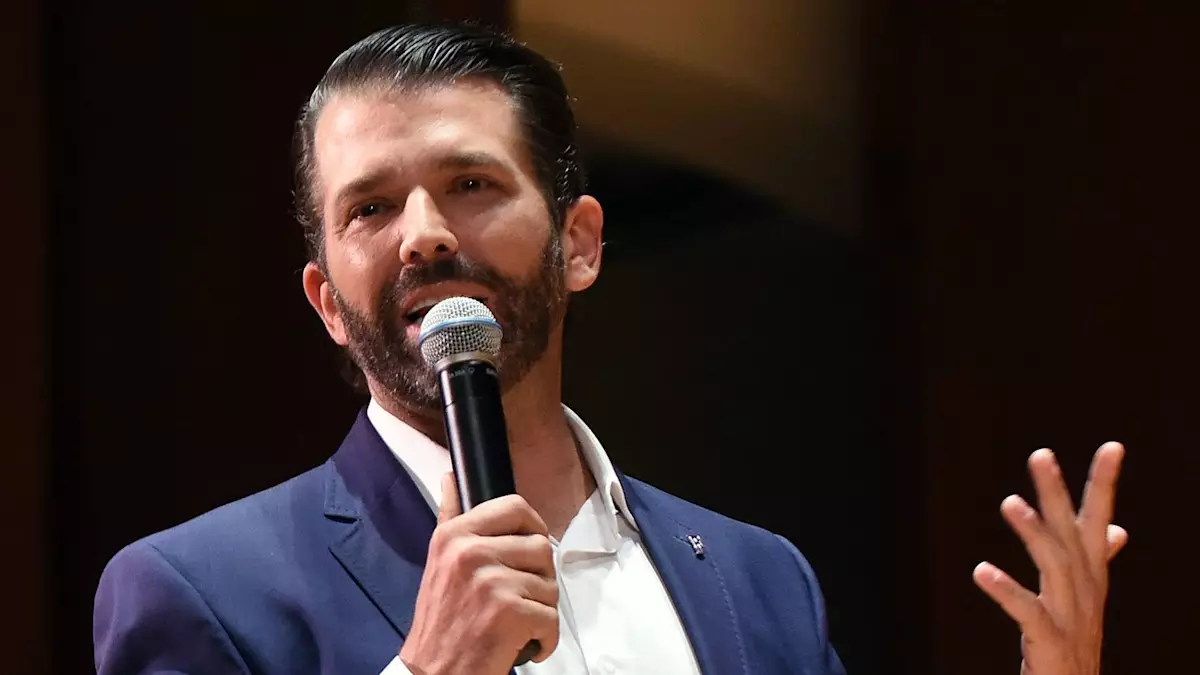In the world of political discourse, nothing seems to be off-limits anymore, especially when it pertains to health crises affecting public figures. The recent announcement of President Joe Biden undergoing treatment for an “aggressive” form of prostate cancer ignited a flurry of reactions, the most unsettling of which came from Donald Trump Jr. His “sarcastic” remarks over social media suggest a dangerous intertwining of humor and insensitivity, reflecting a wider trend of dismissive attitudes toward medical issues in political discussions.
The knee-jerk reaction to Biden’s diagnosis, where Trump Jr. insinuated a conspiracy regarding the seriousness of the situation, is emblematic of a corner of political dialogue that thrives on sensationalism. By questioning the credentials of Dr. Jill Biden, who possesses a PhD in education, Trump Jr. not only exhibited ignorance about academic qualifications but also displayed a profound lack of empathy in the face of someone’s distressing health diagnosis. This kind of commentary raises alarming questions about how we engage with serious issues that impact real lives.
Deconstructing the Sarcasm Defense
In a swift follow-up, Trump Jr. insisted that his comments were merely sarcastic—a claim met with skepticism online. When one resorts to humor to address serious matters, it invariably draws the line between jest and harm. Sarcasm, in essence, is a nuanced form of communication that can sometimes serve to diminish the gravity of a situation. By treating Biden’s serious health condition as fodder for political jabs, Trump Jr. not only undermined the individual suffering from the disease but also reflected a broader cultural irresponsibility where sarcasm is confused with legitimate critique.
Many social media users quickly dissected Trump Jr.’s comments, pointing out that sarcasm, in this instance, is backfiring spectacularly. Claims of sarcasm often serve as a convenient escape hatch when one is confronted with justified backlash—a tactic commonly employed by individuals who misjudge the public’s appetite for humor at the expense of another’s well-being. In the current climate, where misinformation holds sway over rational dialogue, this pattern is particularly dangerous.
Public Reaction and the Irony of Hypocrisy
The public’s reaction to Trump Jr.’s remarks was swift and cutting. From being labeled as “despicable” to accusations of hypocrisy—individuals cornered him on his perceived insensitivity. One pertinent insight from critics revolved around the notion that he, a man who has inherited his luxuries, was questioning the qualifications of others. The irony of that hypocrisy not lost on anyone, particularly in a political environment that loves to draw attention to the failings of others while being blissfully unaware of one’s own shortcomings.
In an era where public figures are often scrutinized not just for their policies but for their character and integrity, such instances reflect a growing chasm between the governing elites and the average citizen. Many perceived Trump Jr.’s response not just as malfeasance but as symptomatic of a deeper malaise that plagues political actors today—namely, a detachment from human decency in favor of scoring cheap points.
Biden’s Response: A Lesson in Resilience
Contrasting sharply with Trump Jr.’s flippant commentary, President Biden’s heartfelt response following the announcement of his cancer diagnosis serves as a poignant reminder of the human experience amidst political turmoil. By expressing gratitude for the support he’s received and sharing his vulnerability, Biden uplifts those around him. His statement, noting that “cancer touches us all,” underscores the importance of togetherness in facing life’s challenges. It contrasts starkly with the careless nature of his critics, inviting a conversation about compassion and humane behavior central to any leader’s integrity.
When tragedy strikes—whether personal, like a health scare, or collective, such as a national crisis—our responses reflect our humanity. The discourse surrounding Biden’s health illuminates how thoughtless comments can easily devolve meaningful conversations into petty political squabbles, further fragmenting public trust and motivation for empathetic dialogue in challenging times.
In distilling the essence of this dialogue, we are reminded that our language and labels matter immensely; they shape not just our political landscape but the emotional climate we live in, urging us to carefully consider how we communicate, especially in the arena of life and death.

